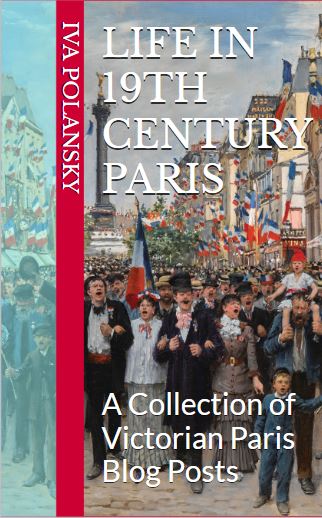 F. Hervé, and Englishman visiting France in the early 1840’s, has this to say – in his long-winded way – about the strong family attachments in the mid-19th century France:
F. Hervé, and Englishman visiting France in the early 1840’s, has this to say – in his long-winded way – about the strong family attachments in the mid-19th century France:
For the sympathies of the heart I have found the French females most keenly alive, no mothers can be more devotedly attached to their children than they are, and it is repaid to them with interest by their offspring, as a devotional affection towards parents is carried to an extreme; in some instances I should say to a fault, as a daughter in general looks up entirely to them, in regard to the man that they may choose with whom she is to pass the rest of her life, without presuming that she ought to make a selection for herself, considering that her marriage is the affair of her parents, and that she has but to obey their wishes in that, as well as in all other cases; hence it is rarely found that a French young lady has thought of romance in her composition, but is on the contrary the mild, docile, obedient, and affectionate pupil, and often imitator of her mother. The English young lady is a little more rebellious; possessing a more independent spirit, she very soon takes the liberty of thinking for herself, particularly on that subject; and could she totally have her will would act for herself also.
Families are much more united in France than in England, and agree together in a most astonishing manner; thus when a daughter marries, instead of quitting her home, the husband arranges his affairs so as to go and live with her parents, and in many cases several families live together and form one little community, which spares the pain of separation of parent and child. The numerous offspring of the celebrated Marquis de Lafayette was a remarkable instance of how whole families can live and agree under the same roof; at his seat called La Grange, his married children and their children and grandchildren were all residing together, whilst he, like one of the ancient patriarchs, was the revered head of his people. I know a case at Boulogne, where in one house there are living together, two great grandfathers, one grandfather and grandmother, two fathers and two mothers and their four children, and what renders it more curious is that they are half English and half French, but all connected by their sons and daughters intermarrying; but strange to say that the English could not agree to live together in that manner, and it is a most extraordinary circumstance much remarked by the French, that wherever the English are settled in any town in France, they always contrive to quarrel with each other, and find employment for the French lawyers; at Boulogne they have at least twice as much practice for the English as for the natives.
Related posts:
Parisians in 1842: The working class
Parisians in 1842: The middle class
Parisians in 1842: The upper class












